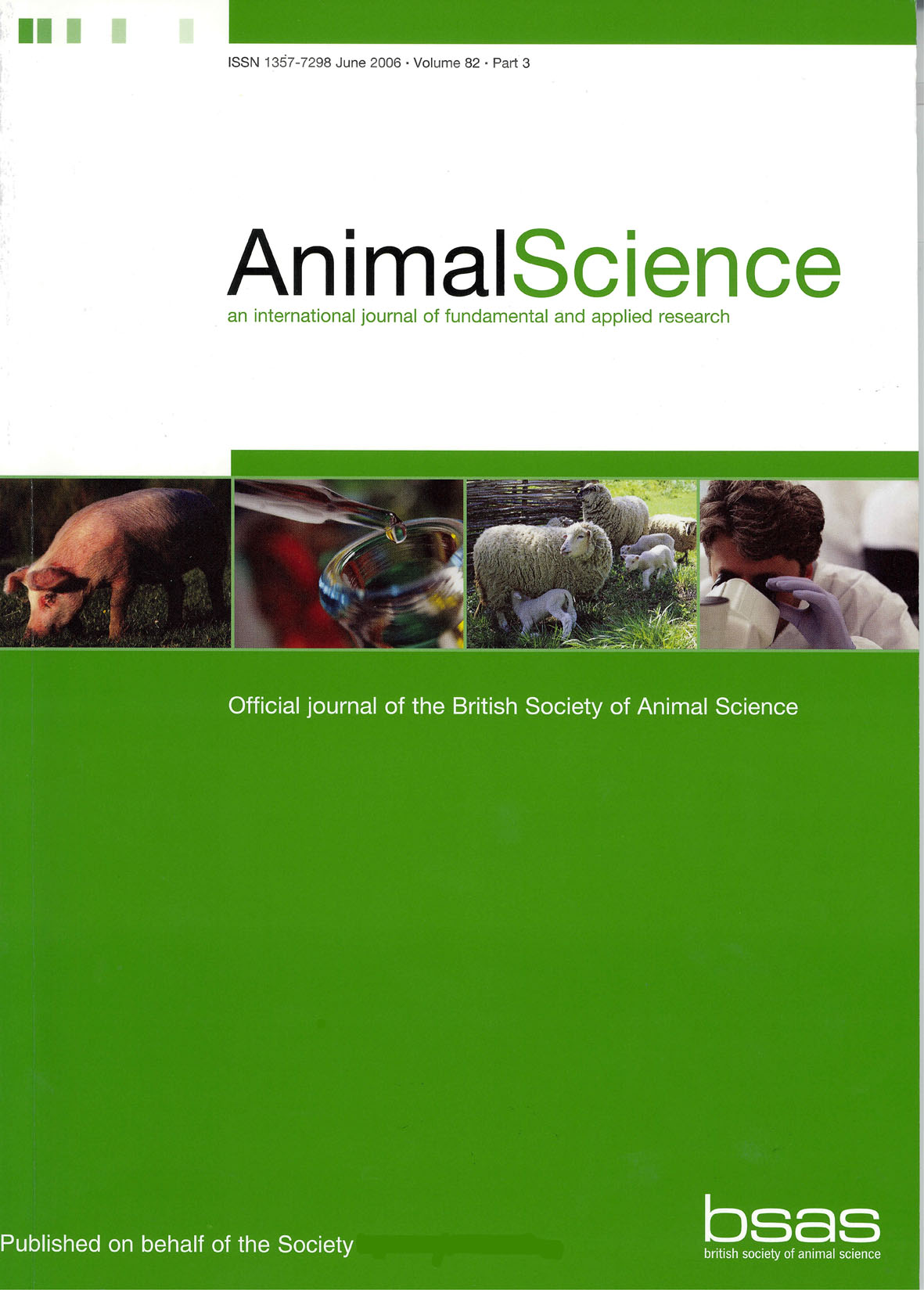Article contents
The effect of level and pattern of energy intake during late pregnancy on the performance of housed Scottish Blackface ewes
Published online by Cambridge University Press: 02 September 2010
Summary
Sixty Scottish Blackface ewes were used in a 2 × 2 factorial experiment in which two levels of metabolizable energy (ME) were given during the final 6 weeks of pregnancy. In two treatments 1600 and 2000 kcal M E were given daily over the total period while in the remaining treatments daily ME intakes were 1200 and 1600 kcal ME during the first 3 weeks of the feeding period and 2000 and 2400 kcal ME during the last 3 weeks. Digestible crude protein (DCP) intakes were constant at approximately 30 g per head daily in the constant energy treatments and 15 and 45 g per head daily in the first and second periods respectively for the low-high energy treatments.
Energy intake had no statistically significant effect on lamb birth weight nor on ewe net body-weight change (change from the start of the experimental feeding period to immediately post partum). Ewes on low-high energy intakes had a significantly lower net body-weight loss than did ewes on constant energy intakes. Pattern of feeding had no significant effect on lamb birth weights. Negative nitrogen balances were found during the first feeding period where the daily DCP intake was approximately 15 g per head.
- Type
- Research Article
- Information
- Copyright
- Copyright © British Society of Animal Science 1973
References
REFERENCES
- 4
- Cited by


